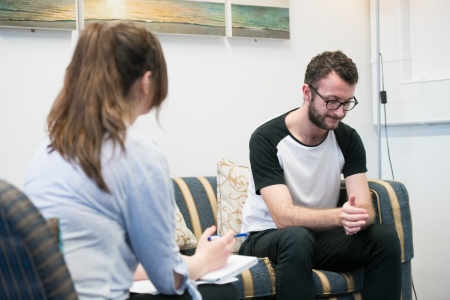
February 15, 2023, by mbzva
Psychedelic Therapy: Unlocking an Alternative Path to Treating Depression
By Ryan Duffy, 4th Year Neuroscience MSci
Psychedelics are type of illicit drug that known to trigger alter states of consciousness, and the user may experience “trips”. In 1973, psychedelic substances were placed as a schedule 1 substance, meaning that the intriguing nature of psychedelics could not be explored by scientists as they were deemed to have no medical application or health benefits. This legislation prevented scientists from exploring how psychedelics worked and then to assess the extent of their utility in a clinical setting.
This has been the case until recently as certain neuroscience research groups have obtained special licenses to study how psychedelics work in humans and explore the idea that these mind-bending chemicals may have a place in medicine after all. The majority of these licenses have been provided to study psylocibin, which is the active ingredient that can be found in magic mushrooms. It is thought that psylocibins main mechanism is through activation of serotonin (5-HT2a) receptors, which are found all throughout the brain. Because of this, many scientists believe that psylocibin may be able to treat depression as a lot of current medications like fluoxetine also change the way the brain activates serotonin receptors.
Serotonin receptors in a healthy brain become active when serotonin is present. When active these receptors are thought to help maintain a person’s mood and mental well-being. One theory of depression speculates that depression may be caused by low concentrations of serotonin in the brain and therefore the serotonin receptors can’ be activated in the same healthy way (1). Without activation the brain has no way to correctly regulate mood and people can quickly fall into states of poor mental health with depressive symptoms being the most common. Pharmacological studies have shown that psylocibin has the ability to activate serotonin receptors (2) and can act as artificial serotonin to boost brain activate causing a reduction in depressive symptoms.
A recent investigation into this pharmacological phenomenon, involved a drug trial 233 patients across 10 countries, who all suffered from treatment-resistant depression, meaning that at least standard 2 medications hadn’t helped relief depressive symptoms. At the end of the trial 1 in 3 patients reported a significant reduction in depression and 1 in 5 said that the improvement lasted at least 12 weeks. In this trial, participants took a synthetic form of psylocibin whilst being guided through the psychedelic with a psychotherapist as many of the short-term hallucinogenic effects can be unnerving. The psychedelic trip can last anywhere up to 8 hours, and at the end of session many participants noted a mental clarity and that their depressive symptoms subsided (3).
In the UK, around 1 million adults don’t respond to first line treatment, so there is a real need for a fresh approach to depression and psychedelic assisted therapy may be the answer. To get further clarity on the utility of psylocibin another larger study has been planned following these positive results that will attempt to investigate how often the drug needs to be taken to provide anti-depressant benefits. If it is proven at this stage to be effective and safe, the drug could be taken to wide scale clinical trials, and we could see psylocibin assisted therapy become a treatment provided in the clinic within 5 years.
References
- Delgado PL. Depression: the case for a monoamine deficiency. J Clin Psychiatry. 2000;61 Suppl 6:7–11.
- López-Giménez JF, González-Maeso J. Hallucinogens and Serotonin 5-HT(2A) Receptor-Mediated Signaling Pathways. Curr Top Behav Neurosci. 2018;36:45–73.
- Goodwin GM, Aaronson ST, Alvarez O, Arden PC, Baker A, Bennett JC, et al. Single-Dose Psilocybin for a Treatment-Resistant Episode of Major Depression. N Engl J Med. 2022;387(18):1637–48.
No comments yet, fill out a comment to be the first

Leave a Reply